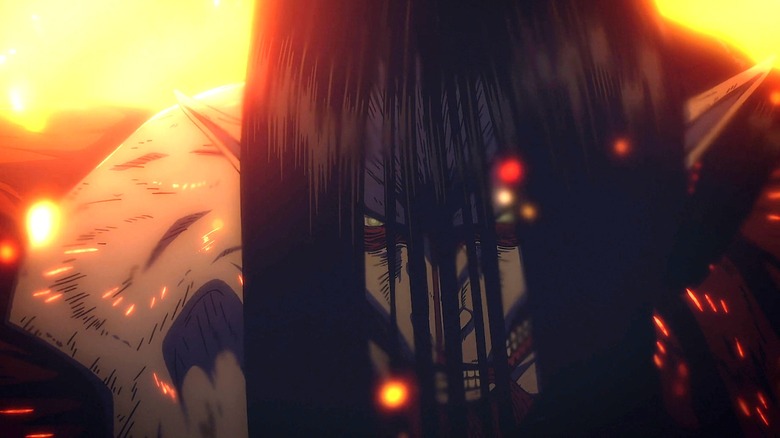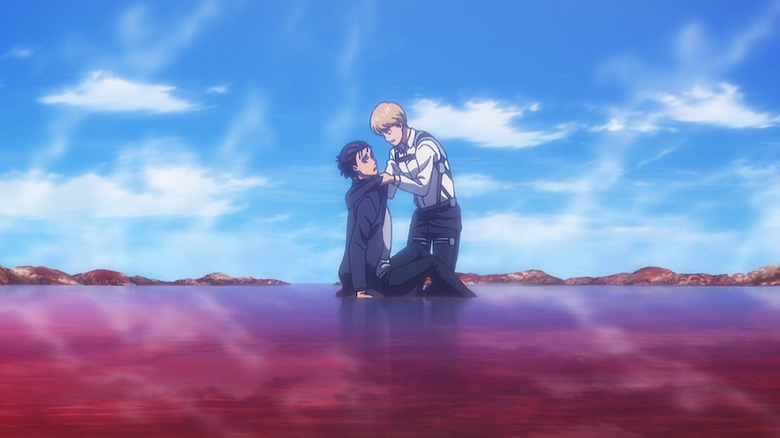Attack On Titan's Most Powerful Titan Form Changed Everything & Killed The Show
Few stories are able to raise the epic scale of their world in the way that "Attack on Titan" ultimately did over the course of a mere four seasons. While the first several episodes alone saw the titans break through Wall Maria, an event that ultimately led to the deaths of a quarter of a million people, by the midpoint of The Final Season, it was clear that things had gotten about as bad as they could get.
As Eren's (Yuki Kaji/Bryce Papenbrook) Founding Titan led a genocidal march across the globe (and did so with the equivalent of 13 episodes remaining), it was clear that there was absolutely no coming back from the "Attack on Titan" endgame and that this was one anime that is unlikely to ever receive a "pass the torch" style sequel series.
Still, it was Eren's final battle with his childhood friends Armin (Marina Inoue/Jessie James Grelle) and Mikasa (Yui Ishikawa/Trina Nishimura) after transforming into a Colossal Titan that signaled "Attack on Titan" as fans knew it was finished. Not only was Eren dead and much of the main cast part of a peace ambassadorship between Marley and Paradis, but the titans were wiped from the Earth, meaning that there would obviously be no more David and Goliath-style epic battles between man and giant.
There's no walking back an ending as definitive as this one
Considering the fact that humans battling massive giants is essentially the entire premise of "Attack on Titan," the absence of cannibalistic behemoths and conclusively killing central protagonist-turned-antagonist Eren Jaeger means the show has to end at this point in the story. While many series have more open-ended finales that suggest there could be more to come, there is little hope for anything like that at the end of this hit anime.
The credits show characters living out their lives before eventually dying, and we learn that the cities on the island of Paradis are inevitably destroyed by war hundreds of years in the future. This leaves only the distant past and the far-off future, one where we see a boy enter Eren's tree, as possible paths to expand on the world of "Attack on Titan."
All the same, considering how well-documented the history of the world in "Attack on Titan" is and that the future is one without titans, it seems pretty unlikely that the story will continue. Still, with both "House of the Dragon" and "The Rings of Power" mining the history of their respective fantasy realms far away from the apocalyptic conflicts that define them, there's always a chance, even if it's a slim one, that Hajime Isayama's beloved series could one day do the same.

